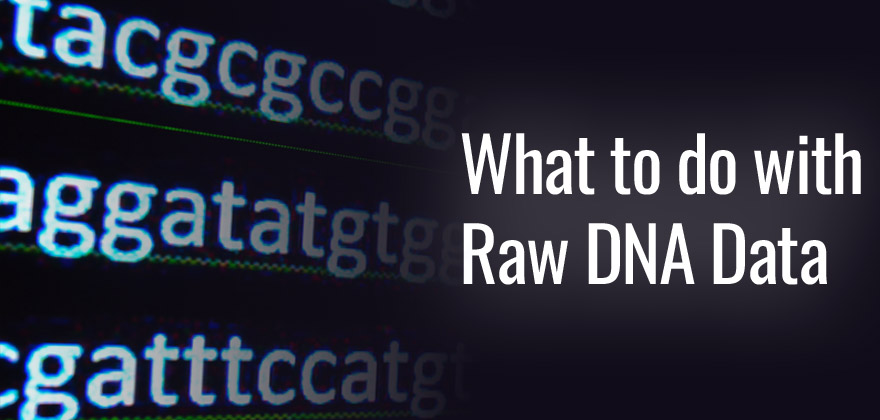So you’ve sent your spit or cheek swab in, waited several weeks, and finally, you have DNA results!
That’s the end of it, right?
Guess again- did you know that the DNA data file created by your testing company can be downloaded and used in tons of other websites and analysis tools?
Let’s learn more about raw DNA data, and how a little spit can go a long way.
Where Can I Upload My Raw DNA?
Let’s compare the “big 5” companies and the options they provide for transferring your raw data.
ALL of the below websites allow you to download your raw DNA data for free.
AncestryDNA – Does NOT accept transfers from other companies- you must purchase their DNA kit- but you CAN download your raw data
MyHeritage – DOES accept transfers of raw data from other test companies, and you CAN download your raw data
Free or fee? – Those who transfer data into MyHeritage from another company receive a list of DNA matches for free and additional features can be purchased for a one-time fee, or through the purchase of a subscription.
Family Tree DNA – DOES accept transfers of raw data from other test companies, and you CAN download your raw data.
Family Tree DNA also accepts transfers of Y-DNA from other testing companies. They offer several transfer options, for a fee.
NOTE: while it is possible to also download Family Tree DNA mitochondrial (mtDNA) test results into a specific file format called a FASTA file, you cannot download Family Tree DNA Y-DNA SNP results from the site, as they do not currently have a file format for them.
Free or fee? – Those who transfer autosomal data into Family Tree DNA can see and contact their DNA matches for free. For a fee, you can access additional tools.
Living DNA– DOES accept transfers of raw data from other test companies, and you CAN download your raw data.
Free or fee? – You can view your ethnicity results and genetic matches for free.
23andMe – Does NOT accept transfers from other companies- you must purchase their DNA kit- but you CAN download your raw data.
How do I Download my Raw DNA Data?
Downloading your raw data is pretty straightforward on all of the major testing websites.
Once you are logged in to your DNA account, look for an option to “Download Raw DNA Data.”
The website may ask you to confirm your password and confirm that you want to download the file.
The resulting file may be downloaded as a .zip file that you will have to extract to your PC. If you opt to save the file to your desktop, it should appear on your main screen when all windows are minimized.
If you are downloading raw data files for multiple testers, be sure to include an identifier when you save the file, as the individual’s name and identifying information is not provided within the raw data file.
For security, it is a good idea to move your raw DNA file to a secure hard drive or password-protected file or device.
If something should happen to your computer, you want to be sure that your DNA information cannot be accessed by an unauthorized user.
You can take plenty of steps to secure your DNA data at home, but what about your DNA data online?
What is Raw DNA Data?
Let’s first get some basics covered, then talk about what to do with raw DNA data.
Raw data, as it pertains to autosomal DNA (atDNA), is an electronic file containing a list of the allele values- otherwise known as the A, C, G or T chemical markers that make up your DNA- on both sets of chromosomes, at each tested location.
This data is downloaded from the DNA testing company’s website as a computer file, which can then be uploaded into another website or analysis program.
The raw data is typically saved as a large “notepad”-type file to your computer, and when you view it, it may contain a message with general information, but it will not contain any identifying information for the test-taker.
The rest of the file will contain each individual DNA location tested, but will probably look like a wall of “gibberish” information.
There is not much you can do with the file until it is uploaded and interpreted into another DNA analysis program- then that raw data can really get to work for you.
Benefits of Transferring Your Raw Data
There are several huge benefits to downloading your raw DNA data.
Take advantage of DNA testing companies that allow you to upload raw DNA data from another company’s website
That’s right- some of the major DNA testing companies will allow you to upload DNA data from another company’s testing website- without having to purchase their DNA kit and go through an additional testing process.
You may need to pay a fee or have a membership to take advantage of some of their DNA features or tools, but the cost is usually far less than buying another DNA kit.
We’ll take a closer look at some of the testing companies that offer this benefit below.
“Fish in more ponds” for DNA matches
Having your DNA results in more than one testing database means you have more opportunities to break down a brick wall in your research.
You may find a close cousin match who didn’t test on Ancestry, but is in the Family Tree DNA database, for example- or, you can compare cousin matches from multiple testing sites through GEDmatch (more on this tool below).
Your raw data can open the door to new family connections and clues.
Compare additional ethnicity estimates
Additionally, you can compare ethnicity estimates across different testing companies to get a better picture of your genetic makeup and heritage.
You may find that your estimates vary between two or more different testing companies- that’s because each company creates their estimates from different baseline test populations, and each defines their ancestral “regions” differently.
These differences can allow you to glimpse a bigger picture of your DNA heritage.
Obtain a health report
Your raw DNA data can provide a lot of information about your health.
Promethease, for example, builds a personal genetic health report by comparing your raw data file to a genetic medical database called SNPedia.
This raw DNA health analysis can provide information on factors such as cancer risk, whether you are susceptible to certain illnesses, genetic conditions, and allergies, and even whether you are “better than average at detecting bitter tastes!”
The report is not a substitute for formal medical testing, but Promethease can reveal many potentially important health factors that can be shared with your doctor.
Until recently, Promethease reports could be purchased for a small fee – however, MyHeritage has recently announced that they have acquired Promethease and SNPedia.
SNPedia will remain a free, non-commercial resource- however, Promethease will also be made into a FREE resource, through the remainder of 2019.
Use Third Party Tools
There are dozens of genealogy-based DNA analyzing tools available online- sometimes called “third-party” tools because they not affiliated with, and are separate from, the major testing company websites.
These tools offer a variety of helpful features to help you dig deeper with your DNA results, including-
- Ability to compare cousin matches from multiple testing sites, in one location
- Break down your matches by chromosome- see exactly where you share DNA with your cousins
- Analysis tools to compare shared DNA and build potential family trees
- Additional ethnicity estimate tools, some of which are geared toward specific ethnicities or populations
- Create a customized view of your DNA matches by “painting,” or color-marking shared chromosome segments
Third-party tools should never be overlooked, as they provide invaluable benefits to help you decipher your test results.
Don’t be overwhelmed if some tools look too “complicated”- there are plenty of tutorials, how-to guides, and videos available to help you learn.
See the Resources section below for a list of third-party DNA tools.
Privacy Concerns
Mention of the third-party tool GEDmatch often brings to mind the recent “Golden State Killer” cold case which made national news.
Police were finally able to identify the serial murderer by comparing DNA samples in GEDmatch.
This case resulted in many concerns about privacy and how secure your DNA is once it becomes part of an online database.
Before uploading your raw DNA file to any online website or database, be sure to read their privacy policy, so that you understand how that company will secure your data, or if they share your data with anybody else.
For example, in the aftermath of the “Golden State Killer” case, GEDmatch completely revamped their Terms of Service and Privacy Policy.
Users can now opt-in or out of allowing their DNA to be used for law enforcement purposes.
Additionally, you can mark your kit for “research” use, which will prevent anyone else from seeing your DNA results.
Several DNA testing companies have come together to form the Coalition for Genetic Data Protection, with the mission of advancing “policies that ensure the privacy and security of an individual’s genetic data.”
For more information on the “hot topic” of DNA data privacy, you can find many news articles and blog posts online.
Resources
Below is a list of fun and useful third-party tools, and additional resources to learn more about raw DNA data.
Additionally, many DNA analysis websites offer tutorial videos online that can educate you on how to use their various tools and applications.
GEDmatch
GEDmatch offers many tools to analyze DNA matches, including X-DNA comparisons, admixture (ethnicity) tools, the ability to upload raw DNA data from multiple testing companies, and even an “are your parents related?” application.
GedMatch requires user registration but is free to use.
DNAGedcom
DNAGedcom has an autosomal DNA segment analyzer that allows you to dig deeper into the shared DNA between your matches.
DNAGedcom Requires user registration but is free to use.
DNA Painter
DNA Painter allows you to “paint,” or color-code, DNA segments to help you better understand which ancestor each piece of DNA came from.
This, in turn, can help you determine which side of the family tree your cousin matches belong to.
The basic site is free, but you can subscribe for additional tools.
The Legal Genealogist
The Legal Genealogist is a blog run by Judy Russel; a “genealogist with a law degree.” Her blog offers lots of helpful perspective on data privacy and many other DNA topics.
The Genetic Genealogist
The Genetic Genealogist, Blaine Bettinger is widely regarded as one of the foremost experts on genetic genealogy. This particular post lists many more online DNA tools from the well-known DNA expert.
ISOGG Wiki
The ISOGG wiki is a must-read treasure trove of DNA information and resources.
Our DNA Testing Guide
To read more about DNA testing in general, check out our guide here.
Conclusion
Raw DNA data can open up a whole new world of opportunities for the family historian.
There’s no reason not to download and transfer your raw data today- provided you are smart about securing your data and understand how your genetic information is protected online.
So explore, discover, and find a DNA tool or two that works for you!


